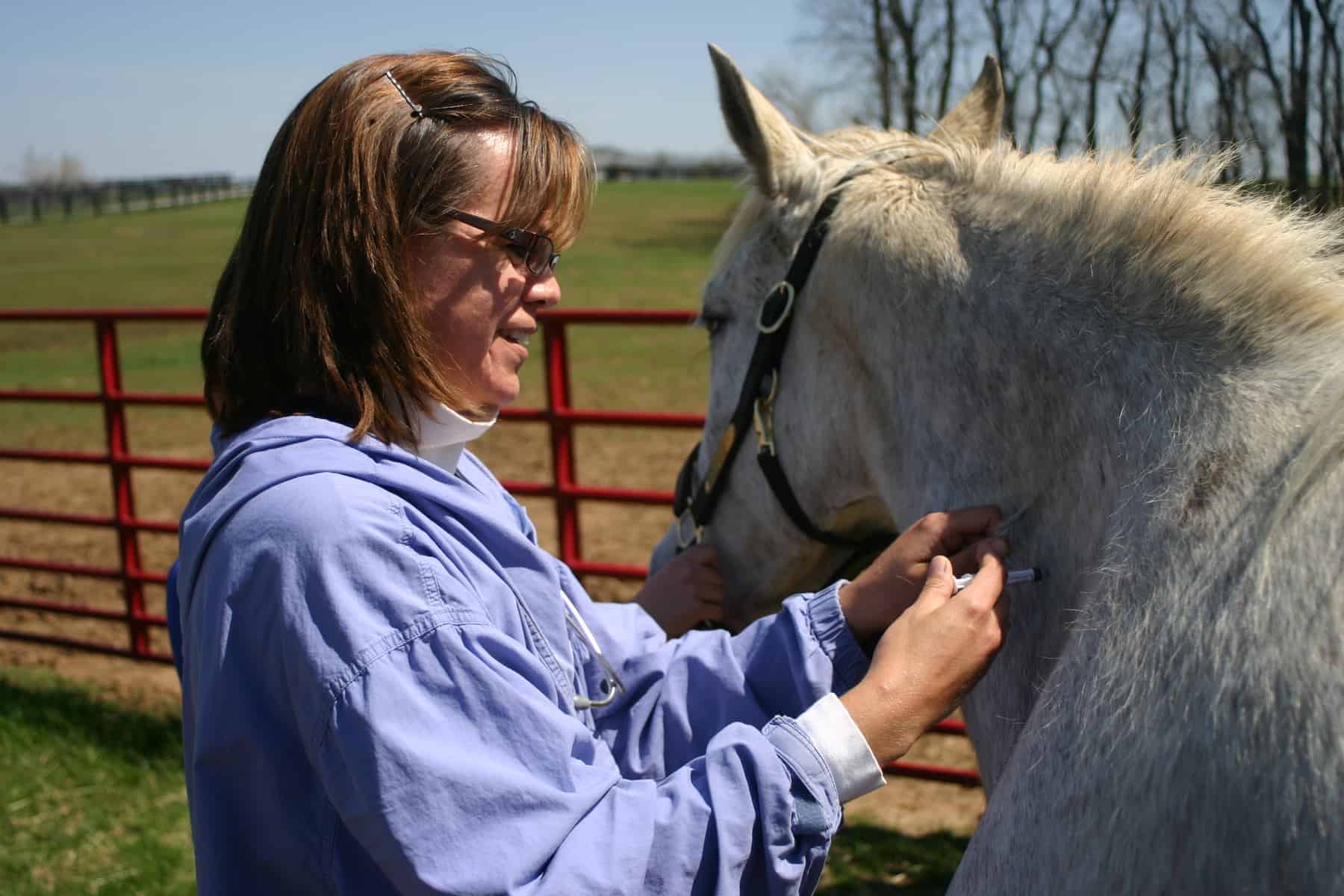Does Equine PPID Affect Immune Responses to Vaccination?

As horses age, the immune system also changes and experiences an overall decline (immunosenescence) and enhanced inflammation, now termed “inflamm-aging.” Inflamm-aging describes a key characteristic of the aging process that involves a shift toward circulation of substances (pro-inflammatory cytokines) that elicit low-grade, chronic inflammation.
In PPID horses, this immune function is even more diminished than it is in normal aging horses. So researchers have asked the question: Does PPID affect horses’ immune response to vaccination?
Amanda Adams, PhD, of the University of Kentucky’s Gluck Equine Research Center, examined this, and Steve Grubbs, DVM, PhD, Dipl. ACVIM, of Boehringer-Ingleheim Vetmedica, presented her results at the 2014 American Association of Equine Practitioners Convention, held Dec.6-10 in Salt Lake City, Utah
Create a free account with TheHorse.com to view this content.
TheHorse.com is home to thousands of free articles about horse health care. In order to access some of our exclusive free content, you must be signed into TheHorse.com.
Start your free account today!
Already have an account?
and continue reading.

Written by:
Nancy S. Loving, DVM
Related Articles
Stay on top of the most recent Horse Health news with












